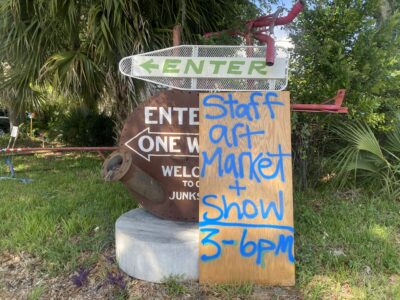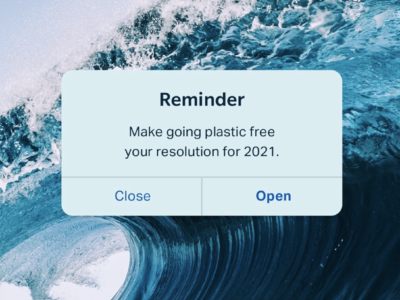The small, square building stood on a path of sand and rocks, surrounded by old bicycle tires, planks of wood and scraps of metal. The mismatched building told years of stories through its antique red door, battered windows and heart pine panels. Outside, two empty dumpsters sat side by side. The Repurpose Project, a nonprofit shop dedicated to reducing waste, collects traditionally overlooked items to incorporate into things like education, crafts and architecture. Saturday’s Earth Day extravaganza gave the staff an opportunity to sell the pieces they create with reused materials and open the doors for everyone to look through used items, all marked 50% off. From 3-6 p.m., music intertwined with the voices of customers who meandered through isles of bottle caps, scrapbooks and computers.
Event Coordinator and University of Florida alum Megan Flynn sat in a room, empty except for the seven staff tables arranged in a circle, racks of used clothes and a closet made from donated mahogany doors.
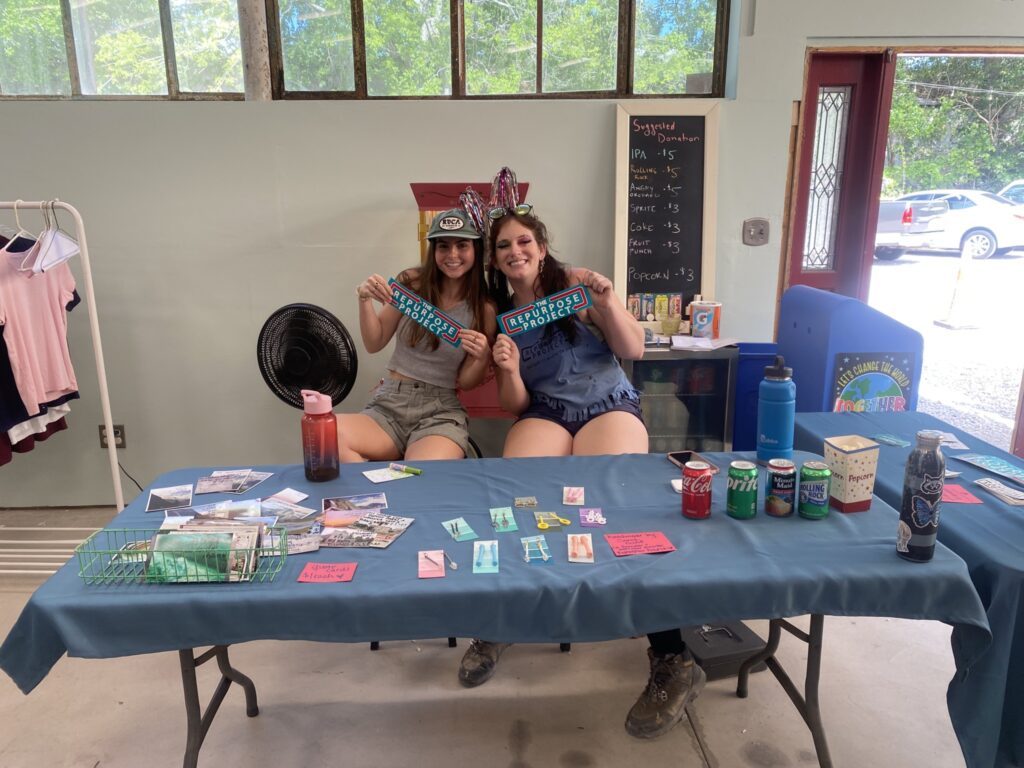
Donated photographs scattered the table in front of her, each one with a quote that she scribbled across the image. An old guitar balanced on a table in the back, covered in knickknacks crocheted together. Next to it sat a few outcasted pom poms. Bubble wands and pop tabs made for beautiful earrings and windchimes brought trash back to life. At another table, long pieces of metal sat next to animal skulls, and at another, bones and bullets formed edgy jewelry. In the background, the freshly painted blueish-greenish walls brought the sundry items to life.
“The wall color was actually a bunch of our HazWaste paint, so paint that we just didn’t have enough to sell, mixed in a giant bin,” Flynn said.
“I think this place teaches you how to respect the resources that you take and use as well,” staff member and University of Florida junior Lea Horsley said. “You can see where it ends up here, and if it doesn’t end up here, it’s just sitting somewhere with no purpose. So, it’s just important to respect everything that you use, to learn how to repurpose it.”
Outside the shed, a table of pipe cleaners, popsicle sticks and corks lent themselves to artistic endeavors for any creative. Past the outdoor tools and materials and up a small flight of stairs, sits another shop. A larger one with overflowing shelves and a maze of pre-owned items in various conditions. The Repurpose Store opened in 2012, and about a decade later, The Repurpose Project opened a second store called Reuse Planet. Just one mile away, Reuse Planet focuses on selling used furniture, appliances and cabinets.
With an estimated 5 trillion pieces of plastic in the ocean, The Repurpose Project works toward a reuse economy that respects and reuses Earth’s resources by producing as little waste as possible.
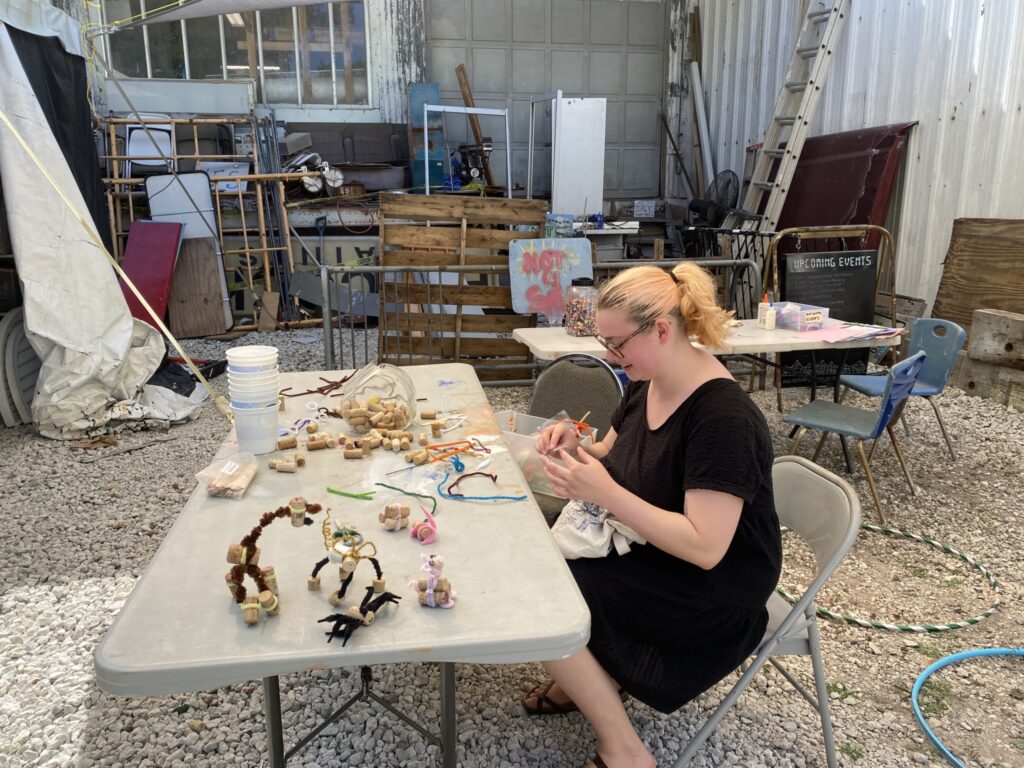
This coincides with the idea of a circular economy strategy that moves away from the traditional linear economic systems in which broken or unwanted items increase consumption-based emissions and waste volumes. Between the creative reuse center and architectural salvage, the store creates a way for anyone to reduce their waste and keep material circulating while buying reused items at less expensive costs.
“It’s always so cool to hear what people are going to do with what they buy, everyone has their own ideas,” Horsley said.
“They just have the most random stuff that would be pretty expensive,” University of Florida senior Jake Knoechel said. “I just enjoy digging through places like this for gold. I collect records and VHS tapes and T-shirts, and just a bunch of different stuff.”
The Repurpose Project grew since it opened to include various projects. In addition to running a reuse store, the nonprofit works with the Zero Waste initiative to educate and encourage global waste reduction. It also has a community center dedicated to promoting togetherness, creativity, art, music and play.
The wide array of items, from toilets and sinks to floppy disks and monitors, creates an atmosphere for anyone to find something useful.
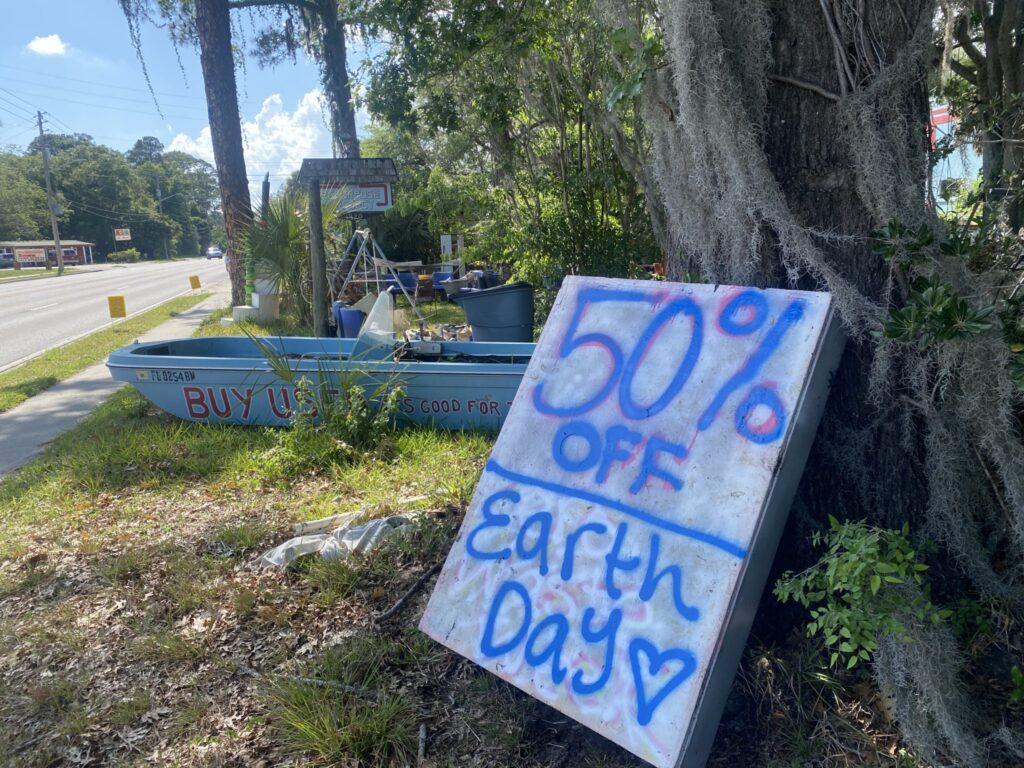
Michael Underwood and his wife visit the reuse store regularly, and the Earth Day sale drew them in on Saturday. Underwood bought his folding bike from The Repurpose Project. After getting it fixed, it ended up $100 less expensive than if he bought it new. He got his daughter a bike too, in addition to some home gadgets and electronics.
“It’s nice when things don’t get thrown away and they get reused,” Michael Underwood said. “I like fixing things, so occasionally, I can find something in here that’s in a state that I can bring to a functionality that I can use. And it’s nice. It’s also cheaper than buying things new a lot of times.”
The Repurpose Project encourages people to rethink what they throw away and instead bring it to its store. Individually useless items such as a single crayon, a half-empty tube of paint, a piece of wood, a plastic cap and a sheet of paper offer opportunities to be grouped with other items to renew their value, according to the nonprofit’s website. Lok Su came into the reuse shop to pick up their partner, but they quickly got drawn into the various items overflowing the shelves and bins. They picked up a small toy and considered buying it to decorate a jacket, hoping to incorporate more reused items into their art.
One staff member, Erik Neisel, feels similarly about reused materials, and the idea of creating new life inspires his work.
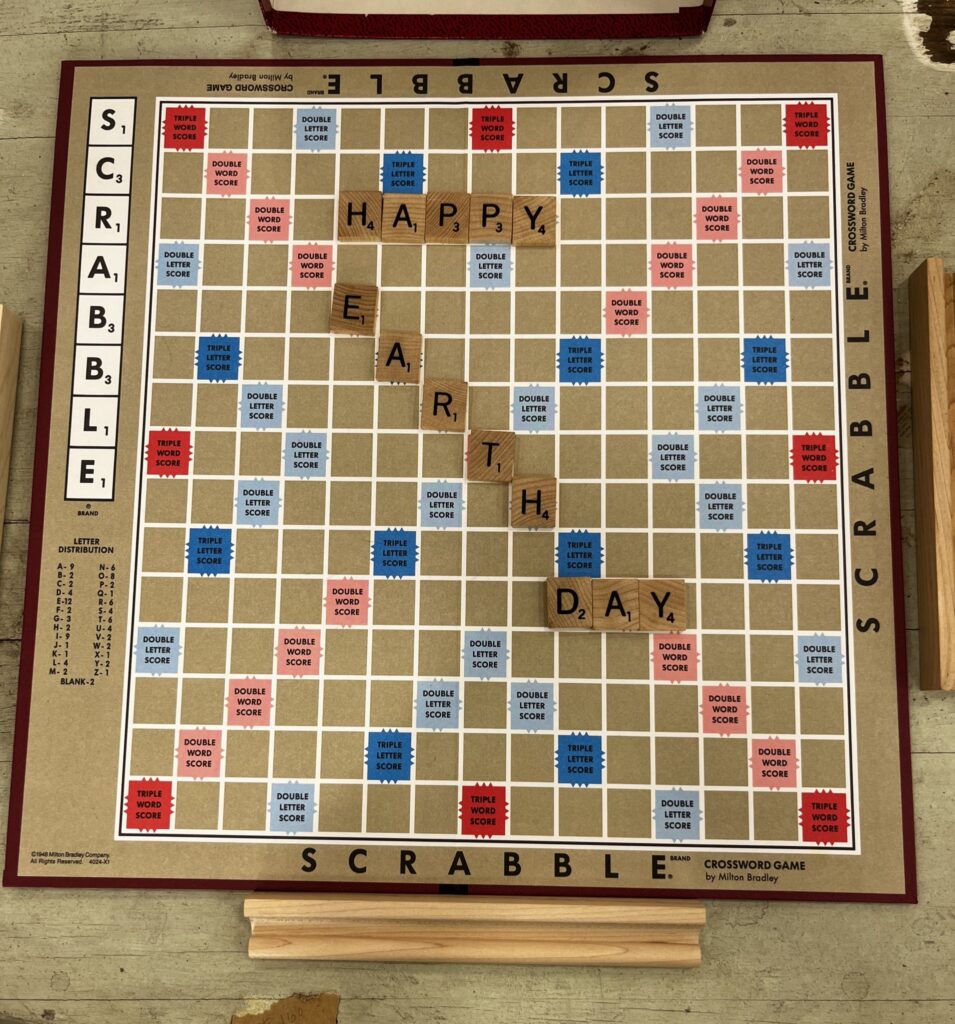
Erik Neisel works outside at The Repurpose Project, and he finds new meanings for the old metal scraps and tools. He holds onto the ones he likes and waits to find additional materials, but when he does, he makes something new. One metal stick had metal ivy wrapped around it to create what resembled a wizard’s staff.
“I was trying to have something that is growing and alive but be made out of dead metal that people throw away,” Neisel said.
The Repurpose Project started hosting events in January when it reopened its community center. Some of the events included an auto maintenance class that taught people how to change a tire and wheel if they get stranded, monthly clothing swaps, an 8-week crafting program for kids and a sci-fi scratch-building class. The shop takes item donations 5 days per week and offers a pick-up and delivery service to make it as convenient as possible to reduce waste and reuse material.

